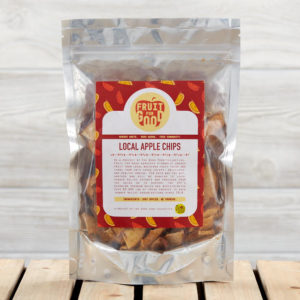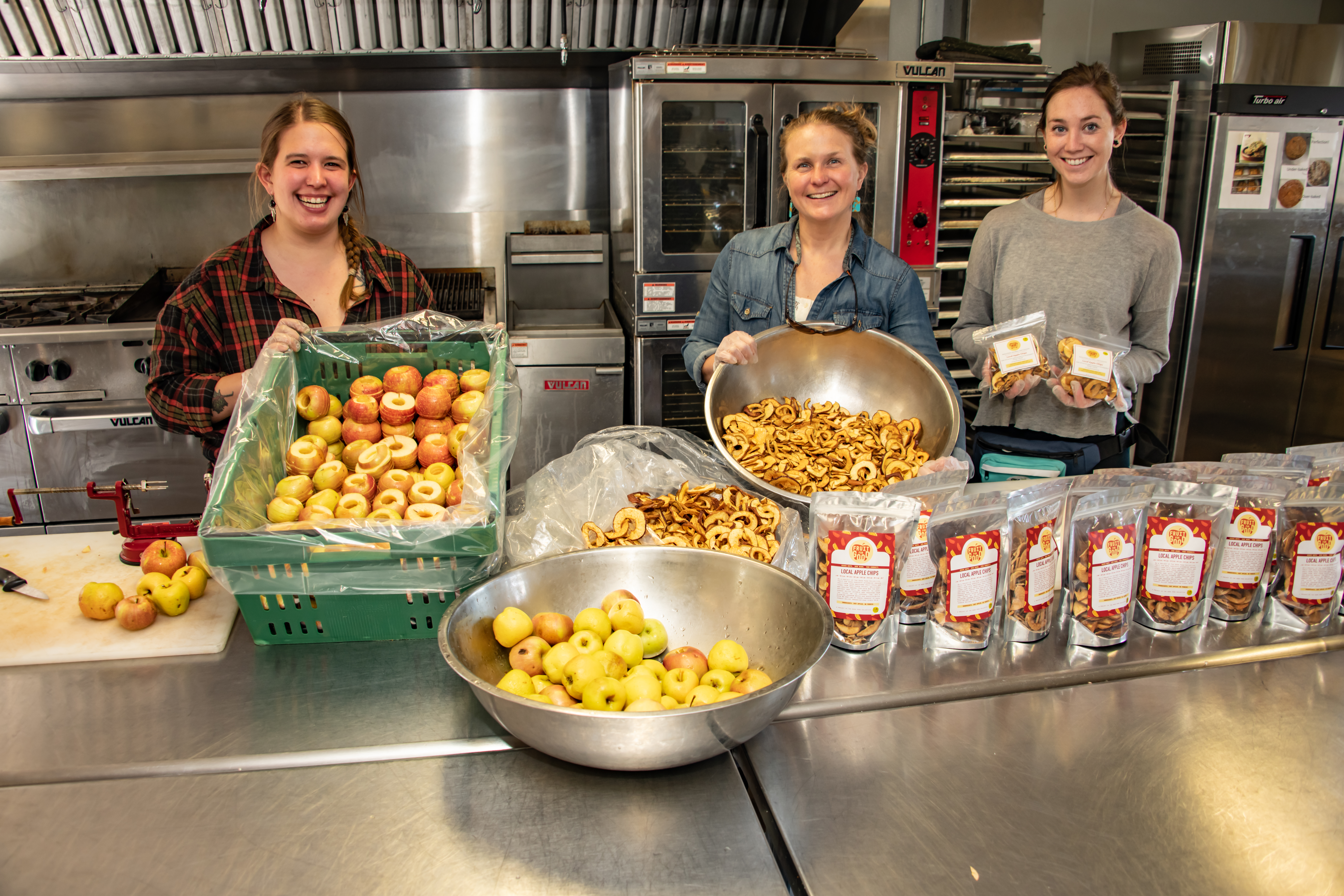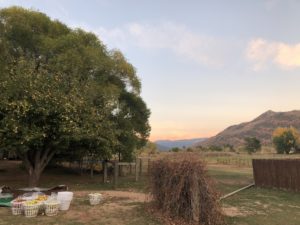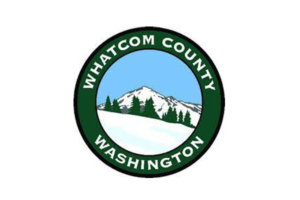The Good Food Collective (GFC) aims to build a vibrant economy, steward natural resources, and support the physical and cultural health of the Durango, Colorado area by investing in the regional food system. In collaboration with many local partners, GFC harvests otherwise wasted food to address food insecurity and keep the community free of food waste — especially apples grown on untended orchards that act as a bear attractant putting community members and bears at risk. This abundance of fruit inspired GFC to launch Fruit for Good, a social enterprise that turns gleaned apples into dried fruit snacks for purchase at local retail outlets. Proceeds are used to donate fruit snacks to area nonprofits and support GFC’s mission to develop the regional food system.
Their Challenge
GFC recognized how tough it is to make a profit as a newcomer in the competitive packaged foods industry. Embarking on this ambitious project, this small team of three knew they needed business expertise to ensure the social enterprise was viable, could become sustainable, and could continue to grow for years to come. They needed a business plan. They needed to know how to price the product. They needed a roadmap to guide staffing and volume forecasting for the upcoming harvest season. Most of all, they needed the peace of mind that comes from understanding the underlying economics of the enterprise.
Partnering with New Venture Advisors
Funded by a USDA grant and with a generous donation to acquire the dehydration equipment, GFC engaged New Venture Advisors (NVA) as business coaches to help them develop an operating framework and financial analysis for Fruit for Good. We started working together in June 2020 to plan for the autumn harvest and production pilot. NVA developed a coaching sequence to help the team think through every aspect of operations, marketing and finance, and provided frameworks for capturing operating data for every activity from harvest to sale, developing product pricing and positioning, and modeling breakeven financials.
During the pilot season the GFC team used these and other tools to develop product packaging and communication, gather detailed data on labor and time requirements for each step in the process, and determine the optimal operating model for moving labor and work-in-process through the stages of production. This careful audit and analysis was the basis for a written operating plan that detailed the process flow, and a financial analysis that enabled NVA to identify fixed and variable costs to evaluate unit economics.
Unit economics is a powerful analysis. It tells you if you are pricing your product or service at a level that covers your costs and provides a profit, and how many units you need to sell in order to break even. For a consumer product sold through retail outlets, it also helps you evaluate the suggested retail price your customers set for their shoppers, and whether you can be price competitive next to similar products on the shelf.
This analysis revealed to GFC that their products would need to be sold at a higher price per ounce than other fruit snacks (that enjoy economies of scale that local foods by their very nature do not have). This was informative not only to the business plan, but also to the product communication strategy. It’s essential that Fruit for Good convey to buyers the value their purchase creates: it supports local jobs, it provides food for neighbors in need, it builds the local food system, it prevents waste, and in this delightfully unique instance, it saves bears.
Moving Forward
 The GFC team is gearing up for full launch this 2021 harvest season, with presales into the local market happening now (June 2021). The products are available at the Bayfield and Durango farmers markets, and will be sold in local grocery stores, online, and someday, they hope, in national distribution. The team will learn a tremendous amount in the coming months, and are glad to have strong operating, marketing and economic foundations to guide their steps.
The GFC team is gearing up for full launch this 2021 harvest season, with presales into the local market happening now (June 2021). The products are available at the Bayfield and Durango farmers markets, and will be sold in local grocery stores, online, and someday, they hope, in national distribution. The team will learn a tremendous amount in the coming months, and are glad to have strong operating, marketing and economic foundations to guide their steps.
Featured image courtesy of Jeff Laydon - Pagosa Photography Harvest image courtesy of The Good Food Collective Apple chips image courtesy of Cindy Trim Photography





Fascinating to learn the behind the scenes coaching, planning and research that went into this really great initiative in SouthWest Colorado. Inspiring to see this product and all the values it checks off for the consumer and the community. Well done!
Liza, thanks for your comments. This client certainly is inspiring!